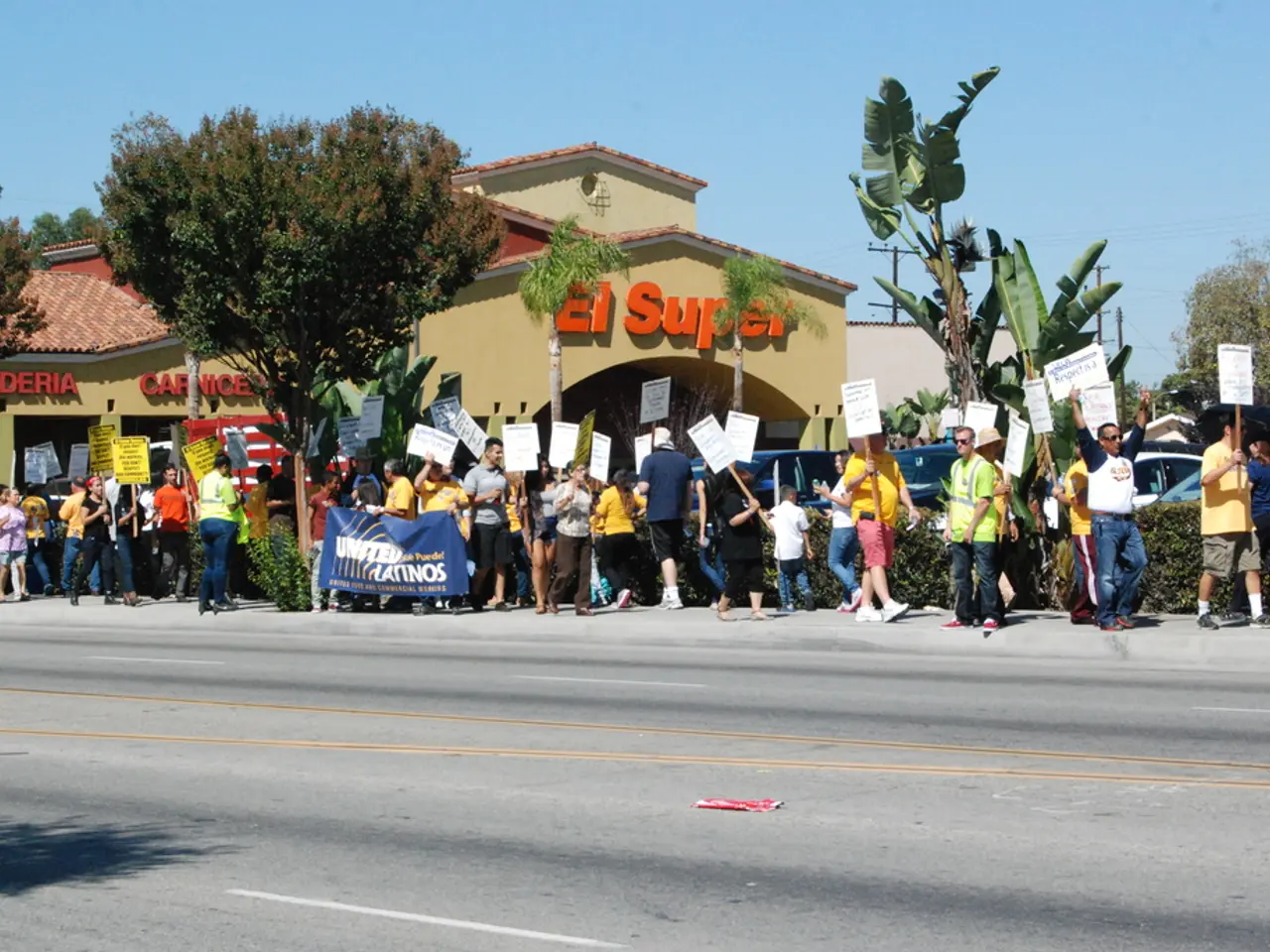Trump Administration's Defeat: Pro-Palestine Activist Mahmud Chalil Freed, After Months Of Controversy
Activist Machmud Chalil, a supporter of Palestine, has regained his freedom.
A US judge has finally ordered the release of Mahmud Chalil, a pro-Palestine activist who faced the Trump administration's relentless attempts to deport him. The judge's decision was a refreshing blow, describing the administration's efforts to keep Chalil detained as "exceptionally strange." The remaining charges against Chalil weren't substantial enough for his incarceration.
With the judge's order, Chalil is now allowed to return to New York, pending a bond, while his deportation case continues. The jubilant activist was seen leaving the detention center in Jena, Louisiana, donning a Palestinian scarf.
His wife, US citizen Noor Abdalla, expressed her relief, saying, "Finally, we can breathe a sigh of relief knowing that Mahmoud is on his way home." However, she asserted that the ruling does little to compensate for the injustices the Trump administration inflicted upon their family. Abdalla had to give birth to their son in New York without Chalil by her side, as ICE had denied him temporary release for the delivery.
Chalil, an Algerian student, was a prominent figure at Columbia University protests against the Gaza Strip war. The US government, citing dubious allegations, accused him of distributing flyers with the logo of the Islamic group Hamas on campus. His lawyers denied these claims. In a chilling display of power, ICE agents arrested Chalil at his home in March, despite his green card and marriage to a US citizen. He was then transferred to a detention center in southern Louisiana.
A Controversial McCarthy-Era Law In Play
The case of Mahmud Chalil attracted widespread attention for months. His arrest was the first known case of a pro-Palestine activist being targeted during the Trump administration, with several more following suit.
U.S Senator Marco Rubio pointed to a law passed during the McCarthy era in the 1950s to combat communism—the Immigration and Nationality Act of 1952 (INA) section 237(a)(4)(C)(i)—which the government used to justify Chalil's deportation. This provision enables the deportation of foreigners deemed opposed to US policy. Rubio argued that the constitutional protection of free speech does not apply to foreigners. The court has declared this practice likely unconstitutional.
As the Trump administration is expected to appeal the decision, the legal community awaits their grounds for detention with bated breath.
- USA
- Palestinians
- Academic Freedom
- Civil Liberties
- Legal Challenges
Insights:
- The Trump administration utilized a Cold War–era provision of the Immigration and Nationality Act of 1952 (INA) to initiate the deportation of Mahmud Chalil, a pro-Palestinian student activist at Columbia University. The administration argued that Chalil's activism and alleged connections constituted a threat. However, the courts have found constitutional and procedural deficiencies in the administration's case against Chalil, casting doubt on the law's constitutionality in this context [1][3][4].
- The invocation of the INA provision for politically motivated deportation raises significant constitutional questions, particularly regarding free speech and due process [1][4]. The use of this law, dating back to the McCarthy era, to target Chalil's pro-Palestinian activism mirrors McCarthy-era tactics of political repression, raising concerns about the law’s contemporary use to penalize political expression [1].
The Trump Administration's employment of the McCarthy-era Immigration and Nationality Act of 1952 (INA) to justify the deportation of pro-Palestinian activist Mahmud Chalil, a student at Columbia University, has sparked controversies regarding academic freedom, civil liberties, and legal challenges. The questionable constitutionality of this practice, deemed likely unconstitutional by the court, has brought the Trump Administration's political tactics under scrutiny, paralleling the McCarthy-era tactics of political repression.
The ongoing controversy surrounding Chalil's case and potential deportation has called attention to the thin line between national security and infringements on free speech and due process, centered around a US policy criticized by students and civil rights advocates.








